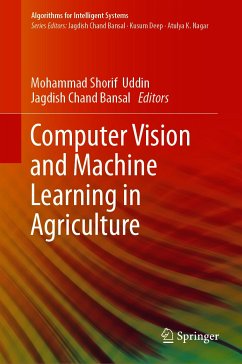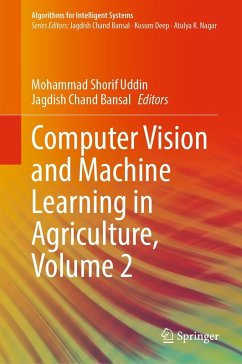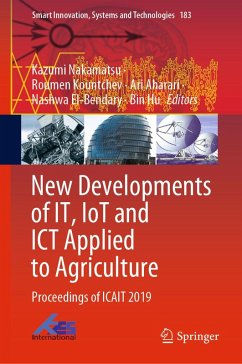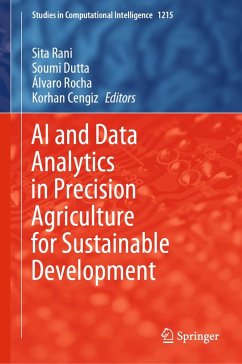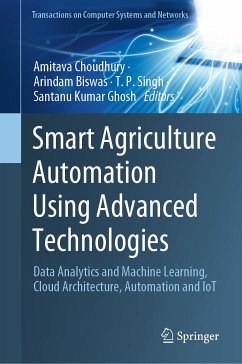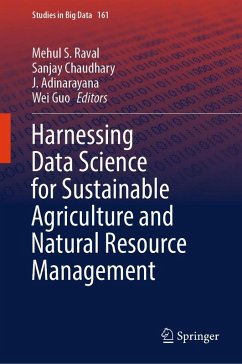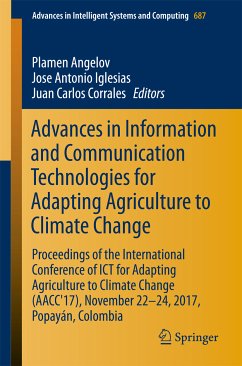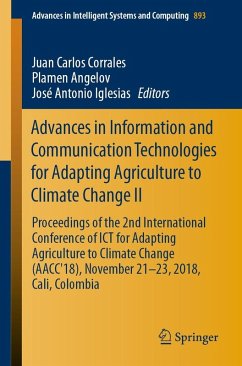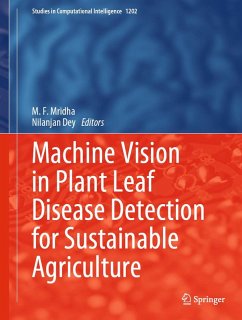Sanjay Chaudhary, Ph.D., is Dean of Students at Ahmedabad University as well as Professor and Associate Dean of School of Engineering and Applied Science of Ahmedabad University. During 2001 to 2013, he was Professor as well as Dean (Academic Programs) at Dhirubhai Ambani Institute of Information and Communication Technology (DA-IICT), Gandhinagar, India. His research areas are cloud computing, blockchain technology, big data analytics, and ICT applications in agriculture and rural development. He has authored nine books and nine book chapters. He has published more than 150 research papers in international conferences, workshops, and journals. He has received research grants from leading organizations including IBM, Microsoft, and Department of Science and Technology, Govt. of India. Seven Ph.D. candidates have completed their Ph.D. successfully under his supervision. He holds a doctorate degree in computer science from Gujarat Vidyapith. His literary articles are publishedregularly in leading Gujarati magazines. Chandrashekhar M. Biradar, Ph.D., is Country Director, CIFOR-ICRAF-India with Asia Continental Program; and Chief of Party (CoP, TOFI Program-Trees outside Forests in India). Dr. Biradar is Landscape Ecologist with broad experience in executing agroecosystem research and outreach across the diverse landscapes in Asia, Africa, and the Americas. Dr. Biradar has a multidisciplinary educational background, with B.Sc. in Forestry; M.Sc. Forestry (Tree Improvement and Genetic Resources, specialization in Agroforestry), and a Ph.D. in Environmental Sciences and Earth Observation Systems (with a focus on forest ecology, biodiversity, and geoinformatics). His core expertise focuses on digital augmentation, geoinformatics, and regenerative agroecosystems. Before joining CIFOR-ICRFA, he worked with ICARDA, the University of New Hampshire, the University of Oklahoma, IWMI, and the IIRS-ISRO. Dr. Biradar has over 25 years ofexperience serving as Researcher, Principal Scientist, Manager, Head of Units, and Research Team Leader and has published over 400+ research articles, tools, and products and received several national and international awards. His current research for development focused on harnessing advances in technologies, agroforestry and forestry, agroecology, indigenous knowledge, and citizen science to restore functional agroecosystems for ecologically sustainable and economically viable landscapes and livelihoods. Srikrishnan Divakaran completed his Ph.D. in Computer Science in 2002 from Rutgers University, New Brunswick, USA. Then, from 2002 to 2008, he worked as Assistant Professor in the computer science department at Hofstra University, Long Island, NY, as Associate Professor at DAIICT from 2009 to 2016 before joining School of Engineering and Applied Sciences at Ahmedabad University in 2017. Dr. Divakaran has nearly 20 years of research and over 15 years of teaching experience and over five years of industry experience at leading multinational companies in computing and finance. Dr. Divakaran has taught a wide range of courses in computer science as well as related disciplines like bioinformatics and operations research and has a strong research background in designing algorithms for problems with applications in bioinformatics/computational biology, distributed systems, and operations research. In terms of research, over the past 7 years, his interests have broadly been in the area of design and analysis of online and approximation algorithms for problems in bioinformatics/computational biology, distributed systems, and operations research. In bioinformatics, his current research focus is on the design and analysis of approximation algorithms and heuristics for the following problems: (1) constrained generalized tree alignment, (2) template-based methods for sequence alignment, and (3) fast heuristics for exact string matching. In distributed systems, his research focus is in the design and analysis of online and offline approximation algorithms for problems in resource allocation, load balancing, and list update. In operations research, his research interests have been in the design and analysis of online and approximation algorithms for bin packing and scheduling with setups. Mehul S Raval is an Associate Dean - Experiential Learning and Professor at the Ahmedabad University. His research interest is in computer vision and engineering education. He obtained a Bachelor's degree (ECE) in 1996, a Master's degree (EC) in 2002, and a Ph.D. (ECE) in 2008 from the College of Engineering Pune / University of Pune, India. He has 25+ years of experience as an academic with visits to Okayama University, Japan, under a Sakura Science fellowship, Argosy visiting associate professor at Olin College of Engineering, the US, during Fall 2016, and visiting Professor at Sacred Heart University, CT, in 2019. He publishes in journals, magazines, conferences, and workshops and reviews papers for leading publishers - IEEE, ACM, Springer, Elsevier, IET, and SPIE. He has received research funds from the Board of Research in Nuclear Science (BRNS) and the Department of Science and Technology, Government of India. He supervises doctoral, M.Tech, and B.Tech students. In addition, he chairs programs and volunteers on technical program committees for conferences, workshops, and symposiums. He also serves on the Board of Studies (BoS) to develop Engineering curricula for various Universities in India. He is a senior member of IEEE, a Fellow of IETE, and a Fellow of The Institution of Engineers (India). Dr. Raval served the IEEE Gujarat section during 2008 - 2015 and from 2018 - 2020 as a Joint Secretary. In addition, he did the IEEE signal processing society (SPS) chapter - IEEE Gujarat Section as vice chair and executive committee member in 2014. Currently, he is helping theIEEE Computational Intelligence Society Chapter - IEEE Gujarat Section as Chair.





